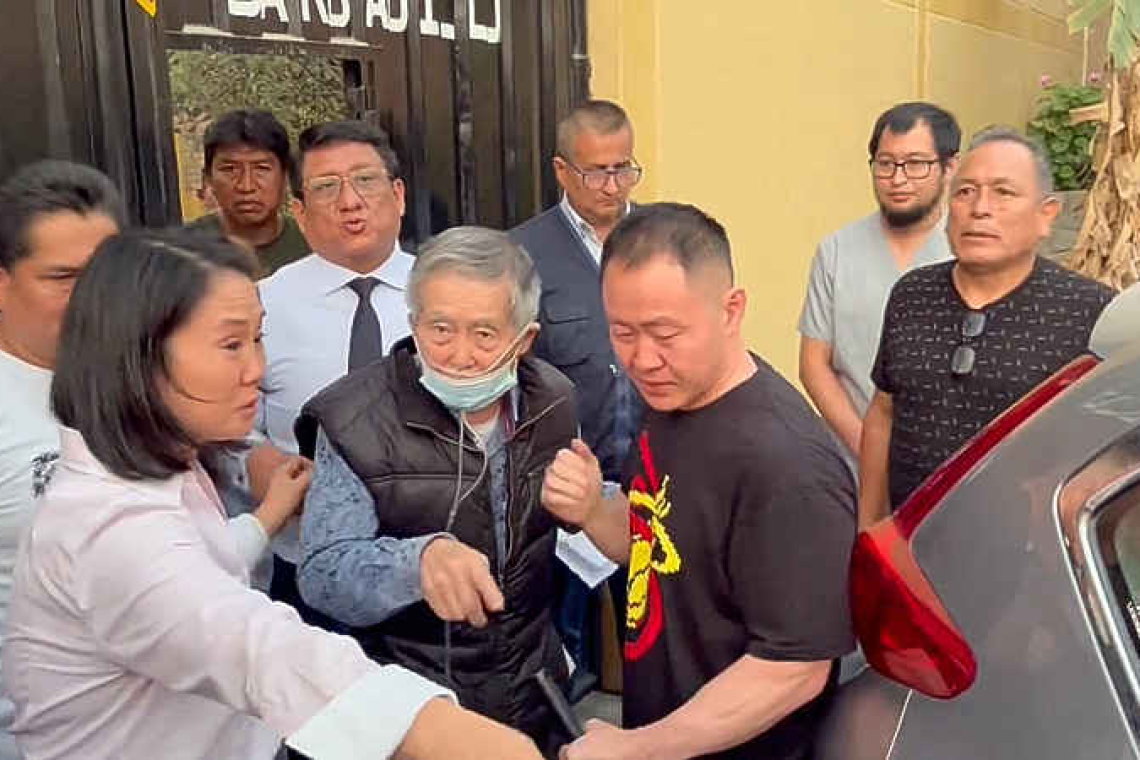Former Peruvian President Alberto Fujimori, accompanied by his children Keiko and Kenji, leaves prison after being released following the restoration of a contentious 2017 pardon on humanitarian grounds, on the outskirts of Lima, Peru, on Wednesday in this screengrab from social media video. (Courtesy Elio Riera/via Reuters)
LIMA--To his supporters, former Peruvian President Alberto Fujimori saved Peru from terrorism and economic collapse, while his critics see him as an authoritarian who committed atrocities and abused democracy during a decade-long rule in the 1990s, during which his government battled the Shining Path guerrillas. The son of Japanese immigrants, Fujimori was sentenced to 25 years in 2009 for the massacre of 25 people in 1991 and 1992, including a child, who were gunned down by a clandestine military squad. On Wednesday, following the restoration of a 2017 Christmas eve pardon, he was released from prison, despite criticisms from victims' families and the regional human rights court. Fujimori's doctors and relatives say the 85-year-old suffered from stomach ulcers, weight loss, hypertension and tongue cancer. "Please don't kill me. If I go back to prison my heart won't take it, it's too weak to go through the same thing again. Don't sentence me to death," Fujimori said in October 2018, months before he returned to prison after the initial pardon. The release of Fujimori, who spent his time incarcerated gardening and painting, leaves two former presidents in prison: Alejandro Toledo, under investigation for corruption, and Pedro Castillo, who illegally tried to dissolve Congress a year ago. Fujimori won a shock victory over Nobel Prize-winning writer Mario Vargas Llosa in 1990, and five years later won reelection over former United Nations Secretary General Javier Perez de Cuellar. Two years later, he sent tanks onto the streets and shuttered Congress, claiming lawmakers were blocking his stabilization efforts, and in 1997 Fujimori won acclaim for the rescue of 71 hostages held in Lima for over 100 days. He was removed by Congress in 2000 after a video was released showing his intelligence chief bribing a legislator, and went into self-imposed exile in Japan until 2005, when he flew to Chile and was later extradited to Peru. Fujimori has four children, including Keiko Fujimori, who lost to Castillo in her third run for the presidency. Fujimori's daughter has faced legal troubles of her own, with a court ruling last week that she stand trial for alleged money laundering.







